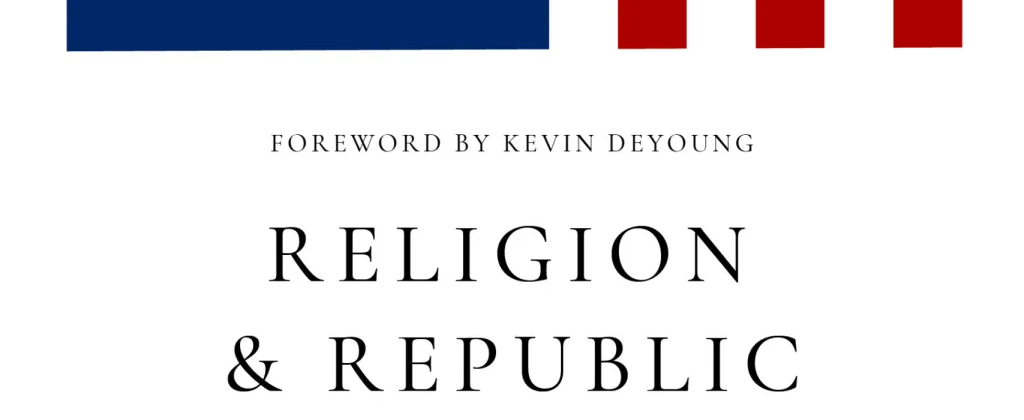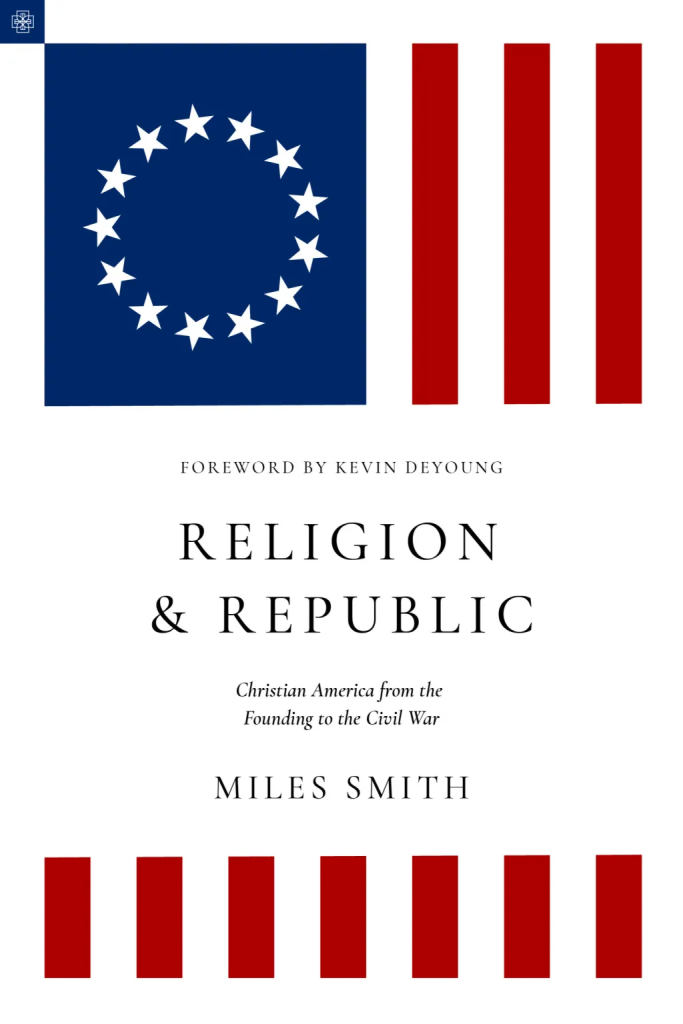

The hubbub of the election distracted me from discussing two recent books that readers will find profitable additions to their libraries.
This past summer Miles Smith published Religion and Republic: Christian America from the Founding to the Civil War. Current published a discussion between Smith and Dan Williams regarding the book. Smith’s scholarship essentially finds that early America saw a vigorous Christianity, sometimes supported by local government and certainly assumed to be a public good which should receive at least informal assistance. While the First Amendment’s Establishment Clause might preclude the establishment of a national church, it did not forbid state and local governments from giving the kind of assistance to religion that many today would associate with establishment. Unlike most of the Bill of Rights, the Establishment Clause does not protect an individual right. Rather, it is a federalism clause, meant to allow for religious pluralism supported at the state and local level. Religious pluralism was supported by keeping religious matters at the state and local levels rather than providing a single national religious program.
The consensus (but not unanimous) view was that religion performed a salutary public service. Because religion was a public good, the general legal approach to religious liberty was that the government should not punish people for their religious views (violating conscience) but at the same time government promotion of religion was acceptable. Call this a “prosecution no, promotion yes” mentality. Smith’s narrative essentially backs up the view of religion expressed by Alexis De Tocqueville. Tocqueville believed religion in America limited the American’s excessive love of progress and overemphasis on material matters. Furthermore, religion contributed to social stability both in its own right and by giving family life a firm foundation. While Tocqueville recognized a certain religious diversity existed in America via the variety of Christian sects, importantly religion gave Americans a common morality. This is important for social unity.
Smith discusses legislation, courts, Native Americans, education and more in the book. It is a highly readable and informative work. I give it a hearty thumbs up.
The same goes for Luke Burgis’s Wanting: The Power of Mimetic Desire in Everyday Life. Consider the book to be an introduction to the thought of literary scholar René Girard. It is Girard who introduced the concept of mimetic desire, the notion that our desires are significantly inspired by imitation of others. This explains much of advertising, for example. Advertisers like to use sports stars or famous actors in their commercials because if I see Lebron James hocking Nike shoes, my unconscious desire to be like Lebron (rich, famous, successful) sparks a desire to buy a pair of Nikes. If I have the same shoes as Lebron, I get some of his status. Of course, this was most overt in the old Gatorade commercials encouraging us to “be like Mike,” in this case Michael Jordan, and drink Gatorade.
The problem is that people’s desires come into conflict. We end up competing for the same things. That can cause quarrels. Witness the child who doesn’t even know a toy exists until he sees his sibling playing with it. Suddenly the toy becomes an object of desire and, sure enough, the kids are soon fighting over a toy that one of them didn’t care about five minutes ago. Girard believes this mimetic cycle explains much of social conflict. The solution is the scapegoat. We find some third party that we can agree that we dislike and unite around abuse of the scapegoat.
Burgis’s book is an attempt to explain Girard’s theory and then apply it to everyday life. He’s successful on both grounds. He deftly arranges his book around anecdotes from his own life in business. The book is peppered with amusing cartoon depictions of important concepts, helping the reader visualize the more abstract concepts.
A reader of Wanting will learn to be more thoughtful about the role of mimetic desire in his or her own life and how it can affect and infect our social and business relationships. Because we do not wish to resort to scapegoating, Burgis gives some suggestions regarding how to more healthily deal with the problem of conflicting desires. We probably can’t escape the mimetic trap, but being conscious of the process can save us from its worst outcomes.
Christmastime is coming. Perhaps you know someone who might enjoy a bit of light reading on weighty subjects. Both of these books fit that bill. Perhaps give these books a look and make a gift of them. Or just indulge and buy them for yourself. I did. And mimetic theory suggests you should want to be like me.